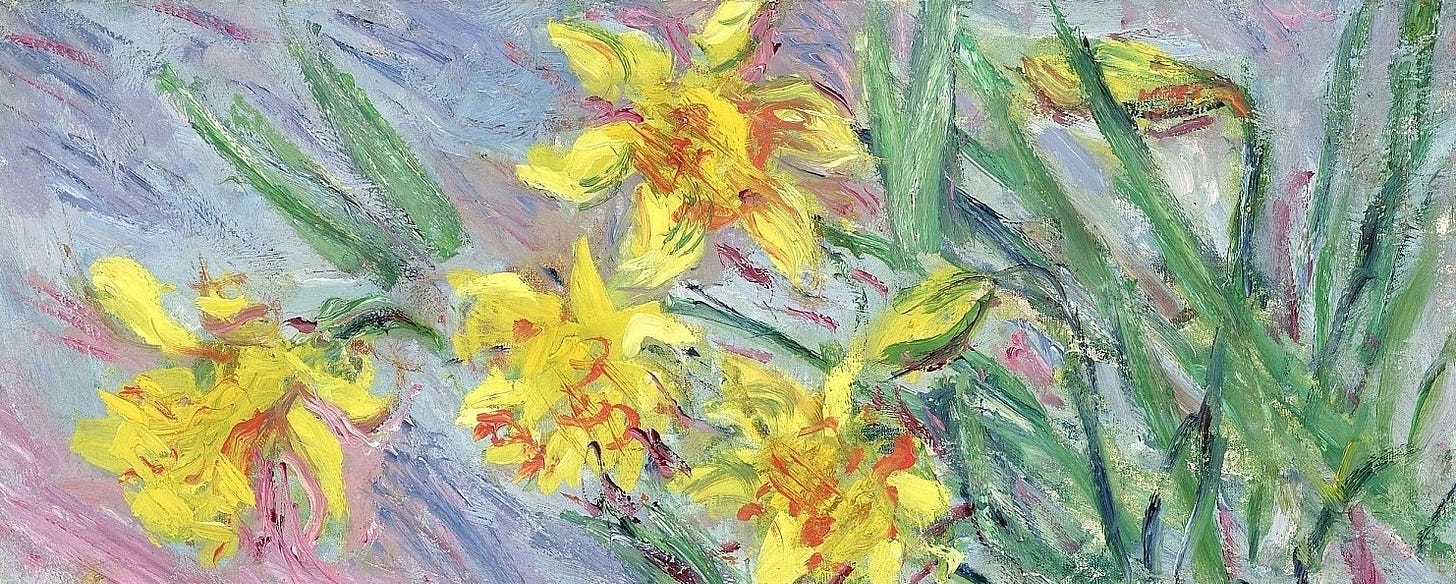
You know “I Wandered Lonely as a Cloud,” of course: the poem about flowers along the edge of bay — the sight of which was so rich that, years later, the poet remembers them, “And then my heart with pleasure fills, / And dances with the daffodils.”
This poem by William Wordsworth (1770–1850) is (as we all used to have to learn in college literature courses our freshman year) an archetypal, perhaps the archetypal, Romantic poem in English. It turns the human to the natural (the poet is wandering as a cloud, after all), even while it turns the natural to the human (employing active verbs — stretch, dance, flash — for the daffodils). And, most of all, the poem concerns one of the “spots of time” that Sally Thomas and I have been exploring here in Poems Ancient and Modern: “past, present and future time coming together in a single but durable golden moment,” as the poet laureate, Andrew Motion, would later put it.
But how about a mischievous …
Keep reading with a 7-day free trial
Subscribe to Poems Ancient and Modern to keep reading this post and get 7 days of free access to the full post archives.



